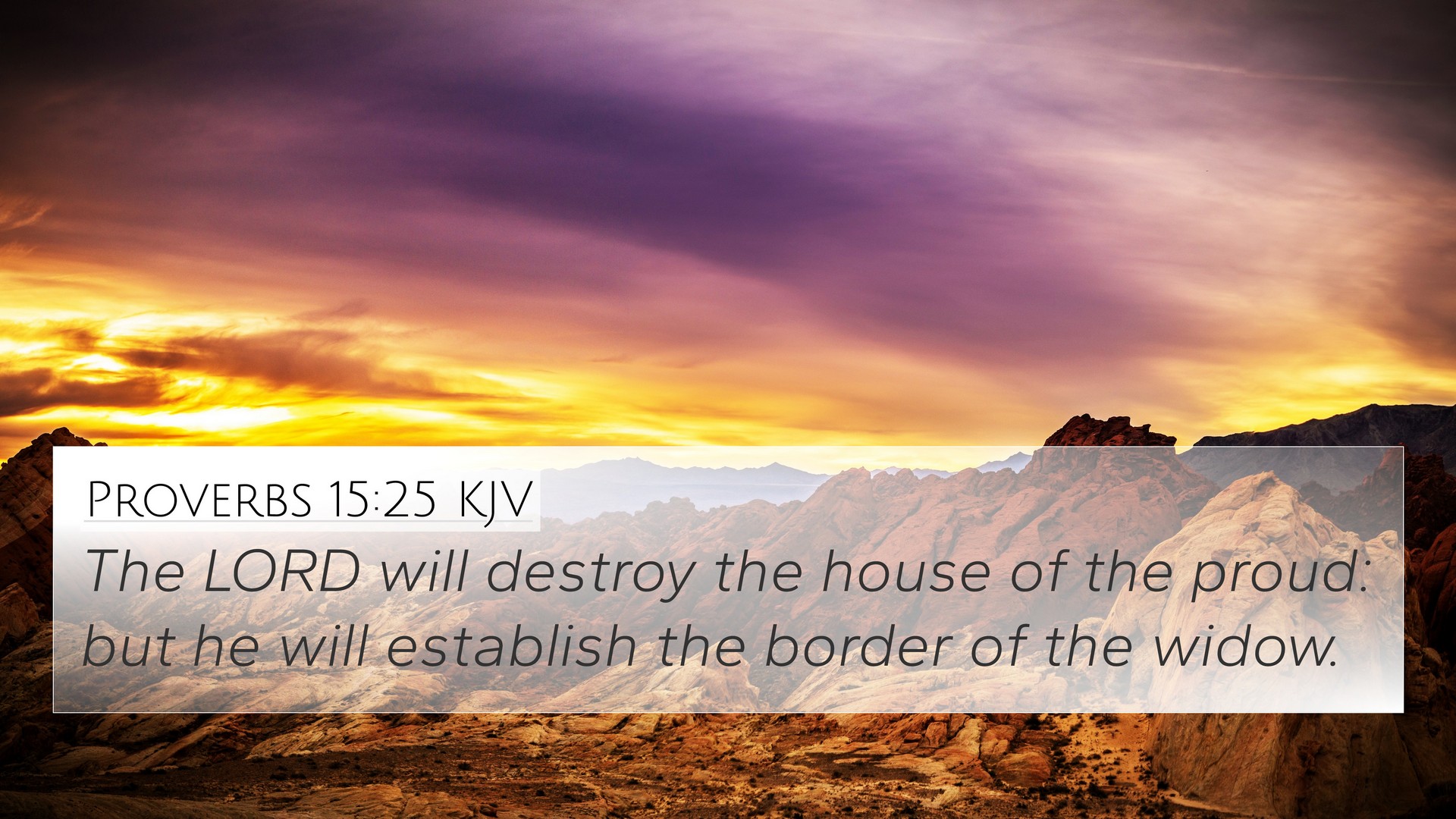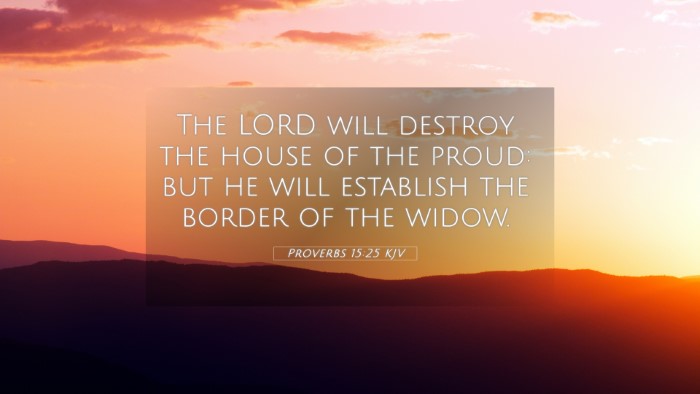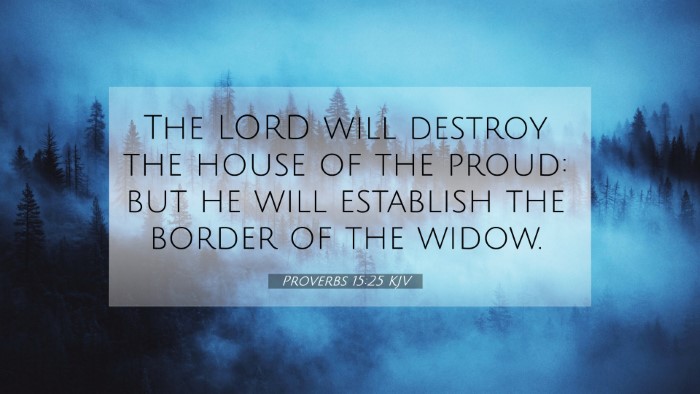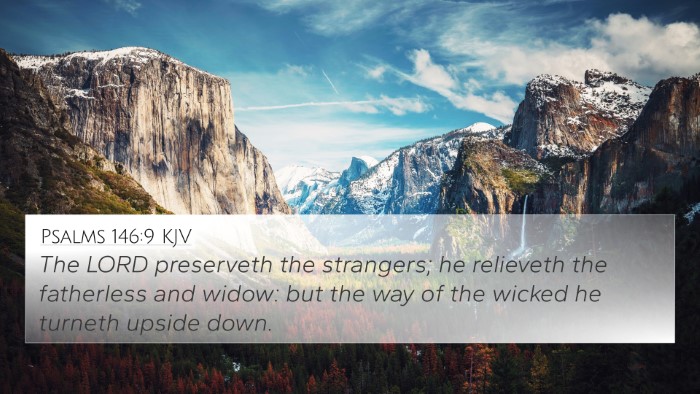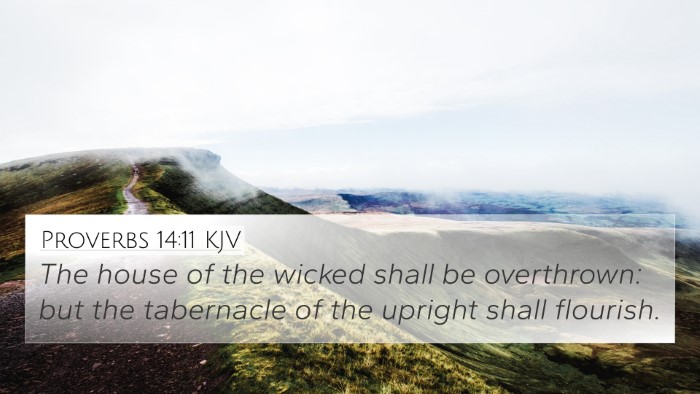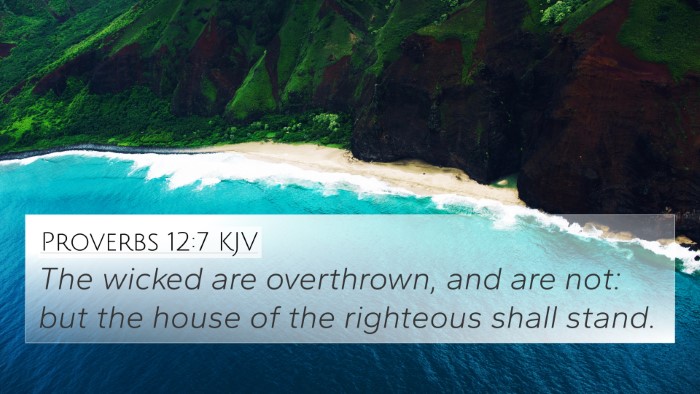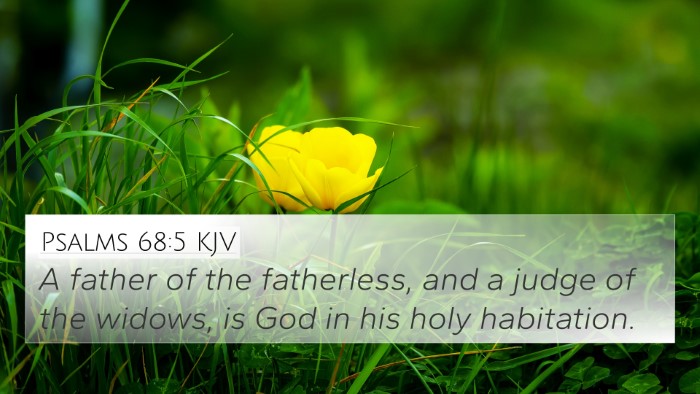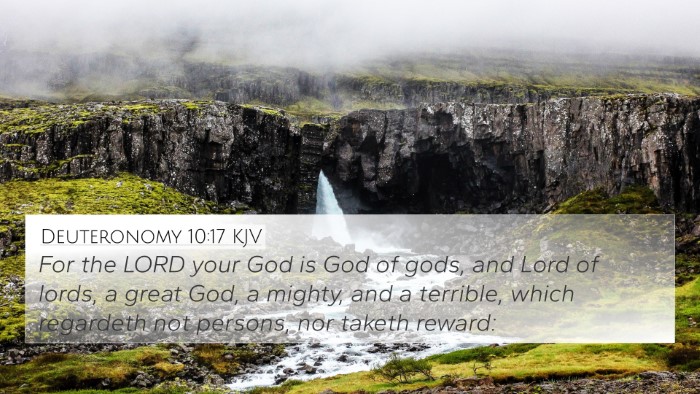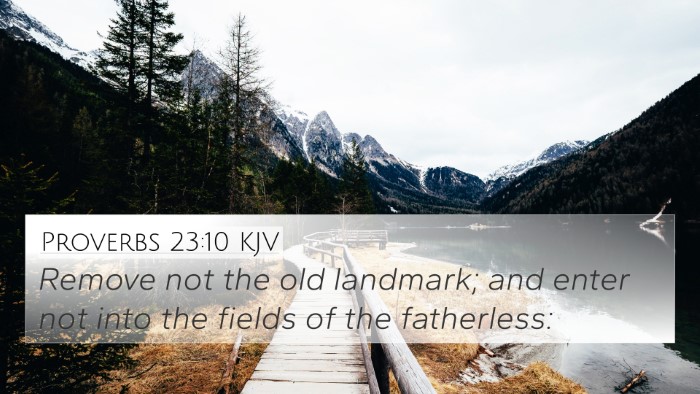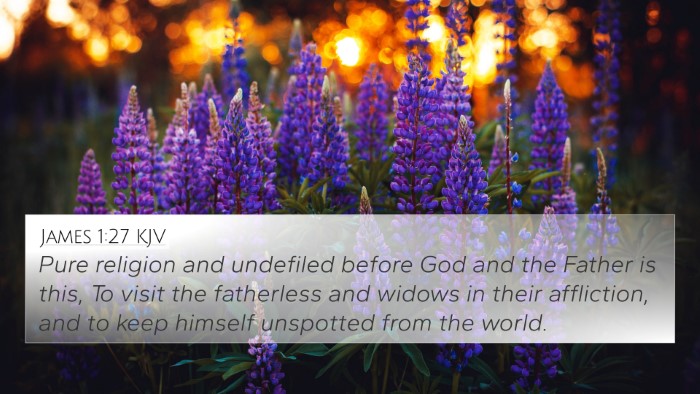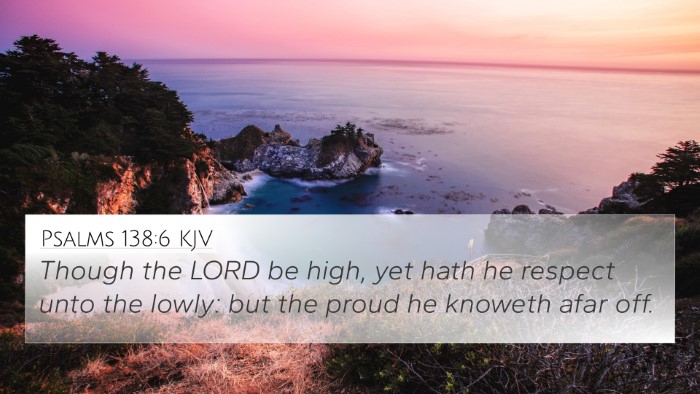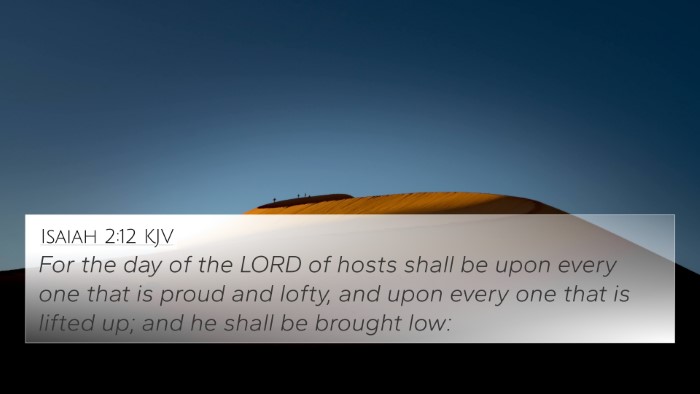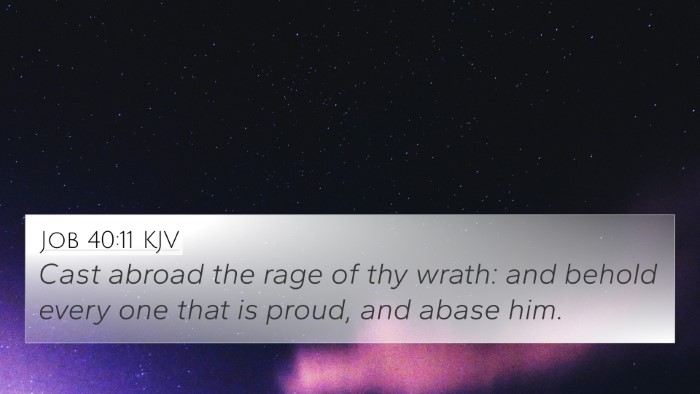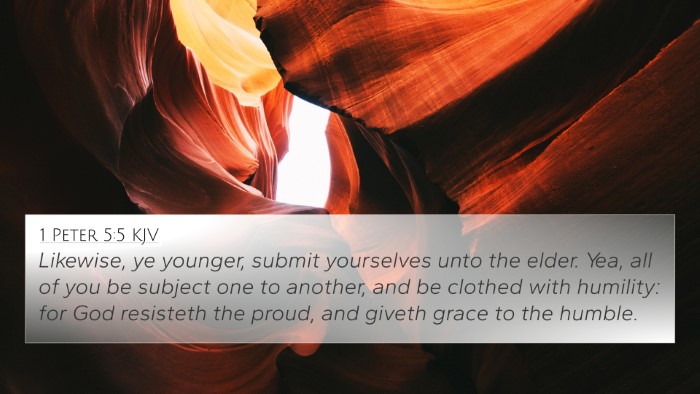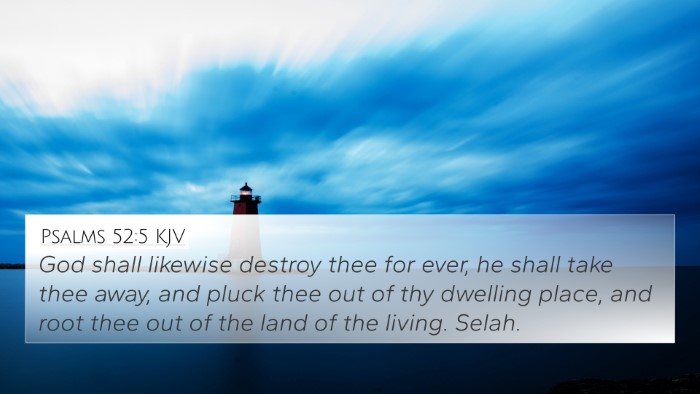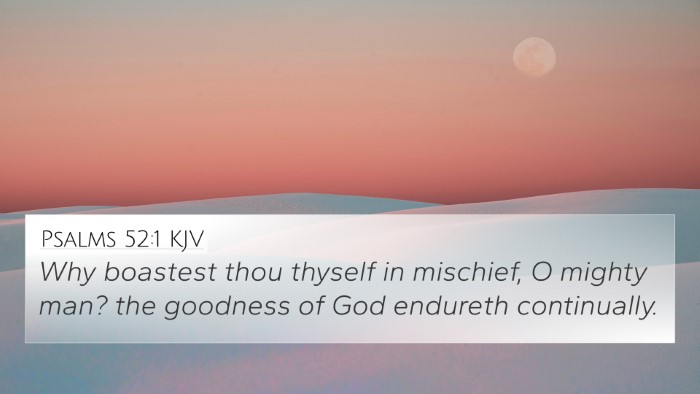Understanding Proverbs 15:25
Proverbs 15:25 states, "The LORD will destroy the house of the proud: but he will establish the border of the widow." This verse highlights two contrasting themes: the fate of the proud versus the protection for the vulnerable, specifically widows.
Meaning and Insights from Commentaries
1. Pride and Destruction
Matthew Henry emphasizes that pride leads to destruction. The "house of the proud" symbolizes not just physical dwellings but also the legacy and stability of one's life. Pride is contrary to humility and often leads to a downfall, whether that be social, spiritual, or in one's estate.
2. God’s Justice
Albert Barnes interprets this verse in light of God's justice. He posits that the proud may seem to prosper temporarily, but God's judgment will eventually bring them down. This serves as a warning against arrogance and an encouragement to lead a humble life.
3. The Widow's Protection
Adam Clarke draws attention to the second part of the verse, noting that God has a special concern for the widow. In biblical times, widows were among the most vulnerable, lacking protection and provision. This assertion affirms God’s commitment to justice and equity for the downtrodden.
Thematic and Cross-Referencing Insights
This verse encapsulates themes of pride, humility, justice, and God's sovereign care. The connections between these themes can lead to numerous cross-references throughout the scriptures.
- Proverbs 16:18: "Pride goes before destruction, and a haughty spirit before a fall." - This reiterates the downfall of the proud, linking closely to Proverbs 15:25.
- James 4:6: "But he gives more grace. Therefore it says, 'God opposes the proud but gives grace to the humble.'" - This New Testament verse reinforces the contrast of pride and humility highlighted in Proverbs.
- Psalm 68:5: "Father of the fatherless and protector of widows is God in his holy habitation." - This verse emphasizes God's protective nature towards widows.
- Luke 18:7: "And will not God give justice to his elect, who cry to him day and night?" - This verse reflects God's attentiveness to the cries of those in need.
- Proverbs 14:31: "Whoever oppresses a poor man insults his Maker, but he who is generous to the needy honors him." - This shows the value placed on kindness towards the vulnerable, paralleling the concern for widows.
- Isaiah 10:1-2: "Woe to those who decree iniquitous decrees, and the writers who keep writing oppression, to turn aside the needy from justice." - It calls out the injustice towards the poor and weak, aligning with Proverbs’ theme.
- Matthew 23:12: "Whoever exalts himself will be humbled, and whoever humbles himself will be exalted." - This serves as a New Testament reflection of the pride-humility dynamic seen in Proverbs 15:25.
Bible Verse Connections
The interconnectedness of Bible verses offers deeper understanding and reflection. By exploring the connections between Proverbs 15:25 and the above verses, one can gain insights into God's character and His expectations of humanity.
Tools for Exploring Connections
To aid in scripture study and discovering these connections, consider utilizing the following tools:
- Bible Concordance: A guide that lists words or phrases in the Bible and where they are found.
- Bible Cross-Reference Guide: Tools that show relationships between verses across the scriptures.
- Bible Chain References: Systems that link verses thematically.
Conclusion
In conclusion, Proverbs 15:25 invites believers to reflect on the seriousness of pride and the importance of humility and care for the vulnerable. By examining cross-references and thematic connections, one can better understand Scripture as a coherent narrative about God’s justice and compassion.
As you engage with God's Word, remember the importance of inter-Biblical dialogue while seeking deeper meanings through comparative Bible verse analysis.
